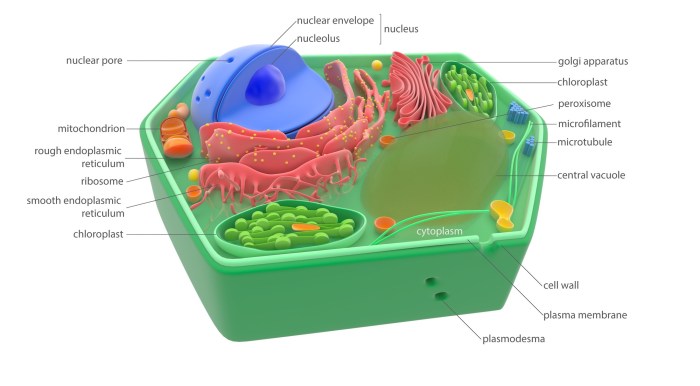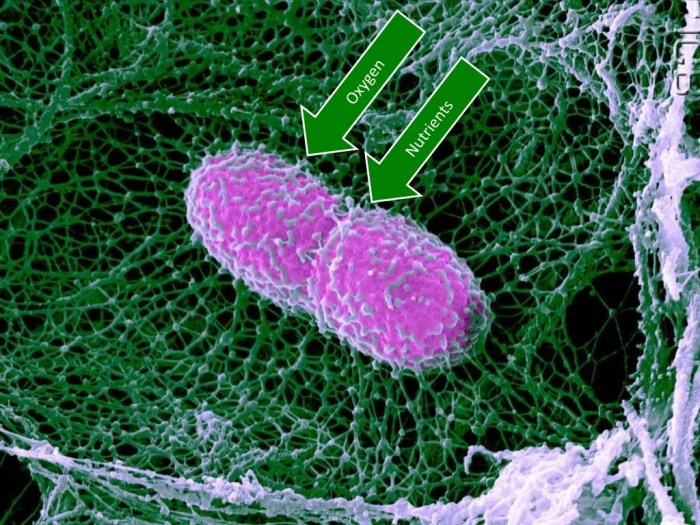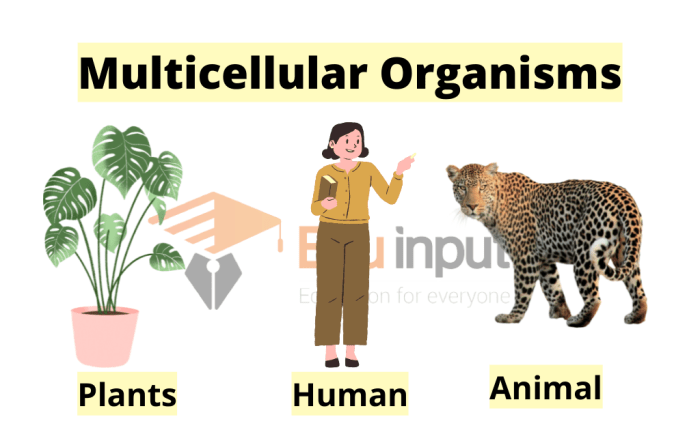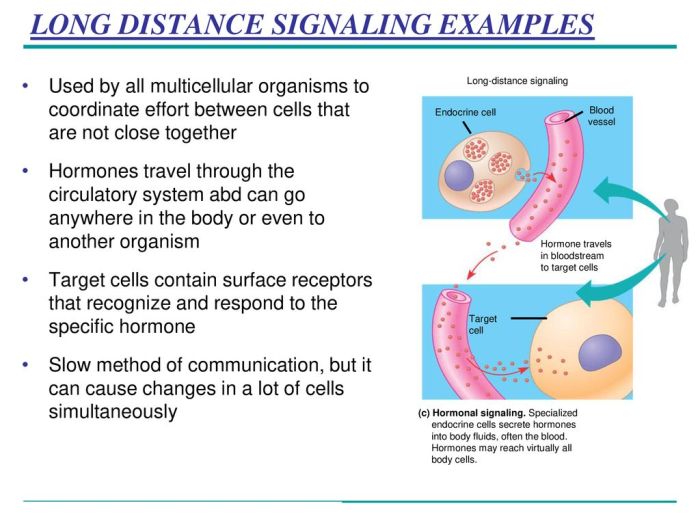Virtually all of the specialized cells of multicellular organisms are the building blocks of life, responsible for the diverse functions that allow organisms to survive and thrive. From the intricate workings of the human body to the photosynthetic prowess of plants, specialized cells play a crucial role in every aspect of multicellular life.
This comprehensive overview delves into the fascinating world of specialized cells, exploring their development, differentiation, communication, and regulation.
The journey begins with an examination of the concept of specialization in multicellular organisms. Specialized cells arise through the process of cell differentiation, a remarkable transformation driven by genetic and environmental cues. This process gives rise to a vast array of cell types, each with its unique structure and function.
Examples of specialized cells abound, from the muscle cells that power movement to the nerve cells that transmit signals throughout the body.
Specialized Cells in Multicellular Organisms: Virtually All Of The Specialized Cells Of Multicellular Organisms

Multicellular organisms are composed of specialized cells, each with a unique structure and function that contributes to the overall survival and well-being of the organism. Specialization allows for efficient division of labor, enabling complex organisms to perform a wide range of tasks.
Specialized cells can be classified into various types, including:
- Epithelial cells: Line body surfaces and protect against external threats.
- Muscle cells: Contract to produce movement.
- Nerve cells: Transmit electrical signals for communication.
- Glandular cells: Secrete hormones and other chemical messengers.
Development and Differentiation of Specialized Cells

Specialized cells arise through a process called cell differentiation, where unspecialized cells become specialized by acquiring specific functions. This process is regulated by genes and environmental factors.
Genes provide the instructions for building and maintaining cells, including the proteins and other molecules that give cells their unique characteristics. Environmental factors, such as chemical signals and physical forces, can also influence cell differentiation.
The control of cell differentiation is essential for proper development and function. Errors in differentiation can lead to diseases such as cancer.
Communication and Coordination among Specialized Cells
Specialized cells communicate with each other to coordinate their activities and maintain tissue and organ function. This communication occurs through various mechanisms, including:
- Cell signaling molecules: Chemical messengers that bind to receptors on target cells, triggering specific responses.
- Cell-cell interactions: Direct contact between cells that allows for the exchange of information and materials.
Examples of cell communication include:
- Hormones: Chemical messengers that travel through the bloodstream to target cells.
- Neurotransmitters: Chemical messengers that transmit signals across synapses between nerve cells.
Tissue and Organ Formation

Specialized cells organize into tissues, which are groups of similar cells that perform a specific function. Tissues are further organized into organs, which are complex structures that perform specific tasks.
The structural and functional relationships between different cell types within tissues and organs are critical for their proper function. For example, in the skin, epithelial cells provide a protective barrier, while nerve cells transmit sensory information and blood vessels supply nutrients and oxygen.
Regulation and Control of Specialized Cell Function

The function of specialized cells is tightly regulated to ensure the proper functioning of tissues and organs. This regulation is achieved through various mechanisms, including:
- Hormones: Chemical messengers that regulate cell activity by binding to receptors on target cells.
- Neurotransmitters: Chemical messengers that transmit signals across synapses between nerve cells.
- Feedback loops: Mechanisms that monitor cell activity and adjust it accordingly.
Examples of the regulation of specialized cell function include:
- Insulin: A hormone that regulates glucose metabolism.
- Thyroid hormones: Hormones that regulate metabolism and growth.
Answers to Common Questions
What is the role of specialized cells in multicellular organisms?
Specialized cells perform specific functions that contribute to the overall survival and functioning of multicellular organisms.
How do specialized cells arise?
Specialized cells arise through a process called cell differentiation, where cells acquire specific characteristics and functions.
How do specialized cells communicate with each other?
Specialized cells communicate through various mechanisms, including cell signaling molecules and cell-cell interactions.
What factors regulate the function of specialized cells?
The function of specialized cells is regulated by a complex interplay of hormones, neurotransmitters, and other signaling molecules.